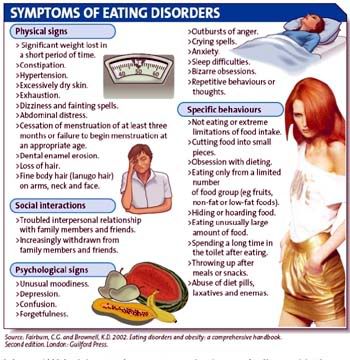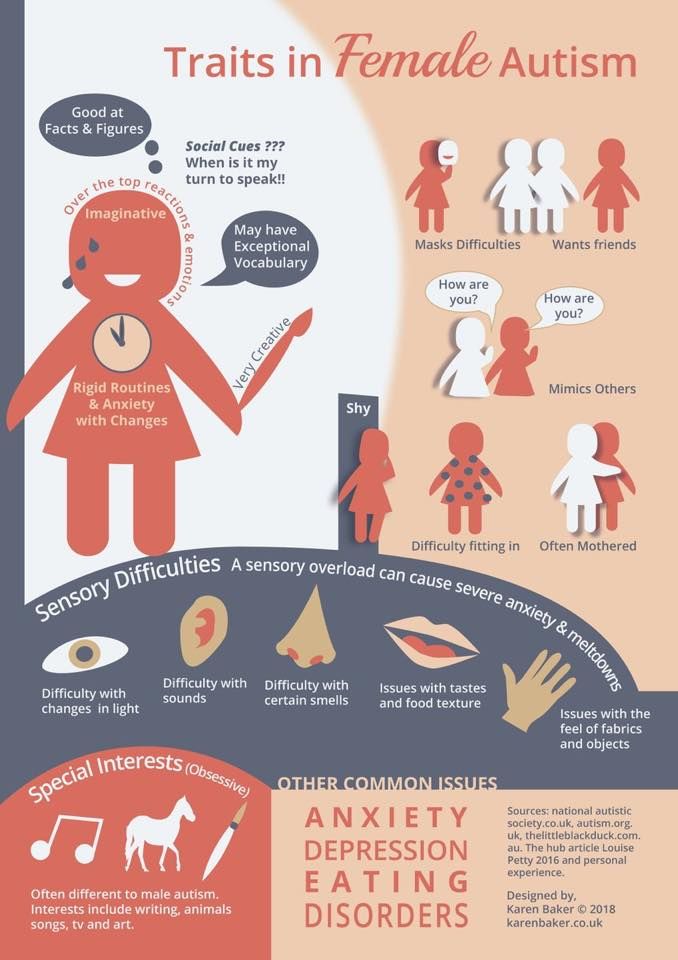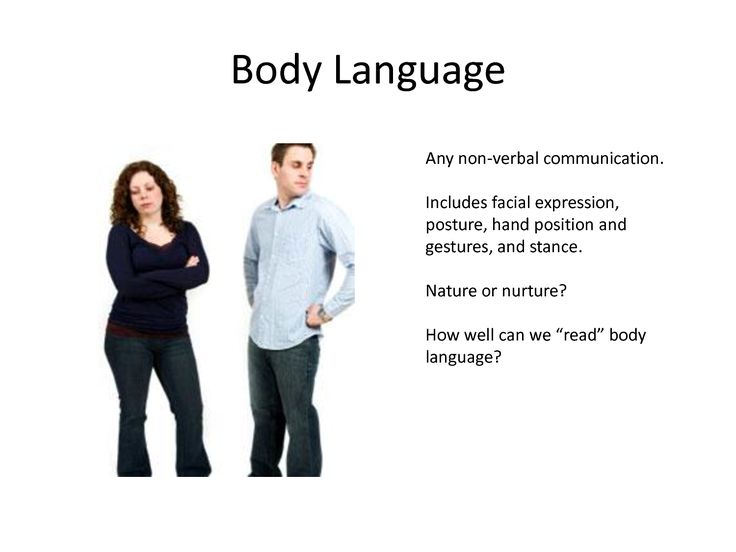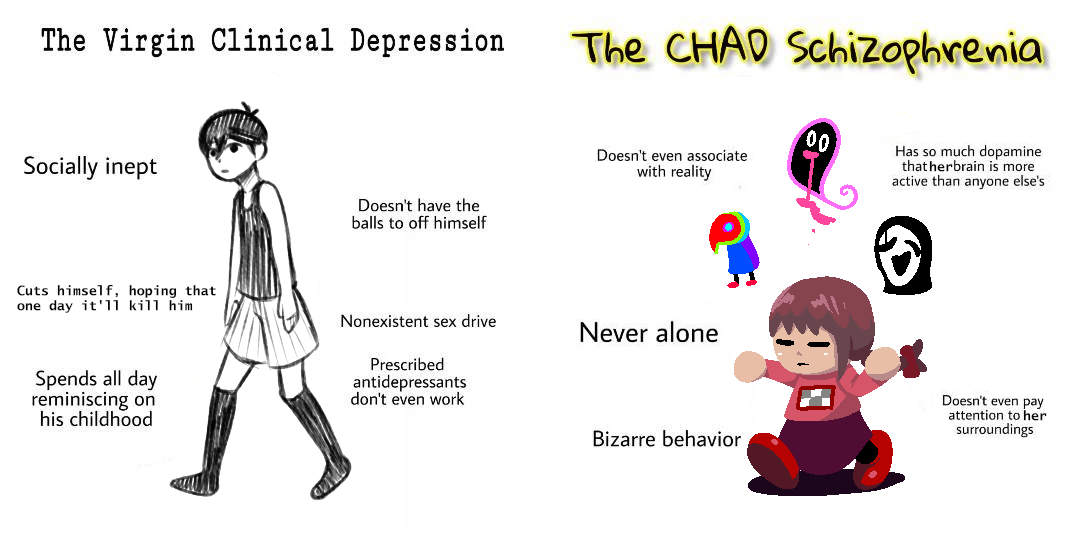Is overeating considered an eating disorder
Compulsive Overeating vs. Binge Eating Disorder
Do you think you may have a problem with overeating or binge eating? Having an extra serving of ice cream after a bad day doesn’t mean you have binge eating disorder (BED). If you consistently find yourself eating large amounts of food, and those eating episodes cause shame, regret, guilt, or sadness, you may have BED.
Overeating is not the same thing as binge eating disorder. BED is a medical condition, and it’s the most common eating disorder in the United States. People with BED regularly eat large amounts of food while experiencing a sense of loss of control over the eating episode. They often feel guilty or shame after eating. No one knows what causes BED, but it may stem from genetics or family history, and it’s associated with other psychological symptoms such as depression and anxiety.
The Best Eating Disorder Blogs of the Year
Emotional eating is another type of eating some people associate with binge eating disorder. While some people with binge eating disorder overeat because of emotional triggers, not all do.
Even if you find yourself overeating to the point of excess on certain occasions, that doesn’t necessarily mean you have binge eating disorder. It mostly boils down to how frequently you binge, whether you lose control and feel like you can’t stop eating, and how you feel during and after a binge eating episode.
If overeating is something you do on occasion, but it doesn’t distress you, you probably don’t have binge eating disorder. If you feel shame during and after binging, and hide your eating habits, then you may be suffering from BED.
If you think you may have binge eating disorder, you should ask yourself the following questions:
- Do you have
episodes of eating a large amount of food in a short period of time while
experiencing a sense of loss of control over the eating more than once a week? - Do you feel like you do not have
control over your eating? - Do you feel shame, guilt, or regret
after overeating? - Do you often eat when you’re not
hungry? - Do you often eat alone because you’re
embarrassed about how much you eat?
These are all red flags for BED.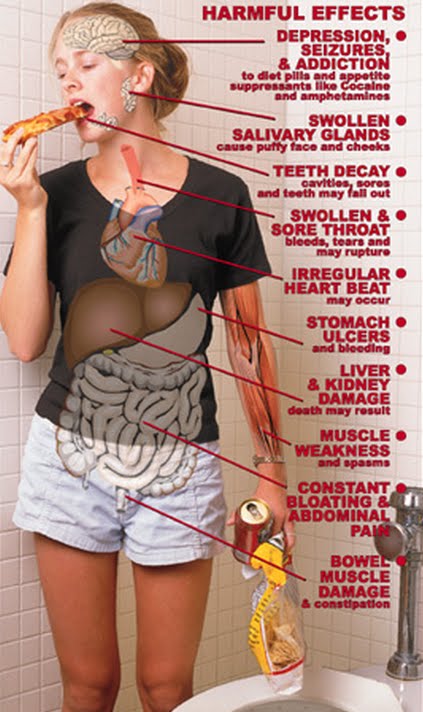 If you answered yes to some of these questions, reach out to a health professional to get evaluated.
If you answered yes to some of these questions, reach out to a health professional to get evaluated.
Binge eating disorder can cause both physical and emotional health complications if left untreated. For those who are overweight or obese, potential complications include:
- asthma
- type 2 diabetes
- heart disease
- high cholesterol
- high blood pressure
BED can also affect your emotional health. People with BED may experience anxiety, depression, or low self-worth or self-esteem. These things, in turn, can have a large impact on a person’s quality of life.
The most effective treatments for eating disorders typically involve some form of psychotherapy or counseling with a medical or nutritional component. Counseling could be in the form of individual or group counseling. Some treatments involve outpatient therapy, while others are as inpatient at a specialized treatment facility.
What Therapy Is Available for Binge Eating Disorder?
Your treatment plan will be highly individualized depending on emotional factors and how severe your binging is. Therapies such as cognitive behavioral therapy, interpersonal psychotherapy, and dialectical behavioral therapy are often used to help people with BED establish regular patterns of eating.
Therapies such as cognitive behavioral therapy, interpersonal psychotherapy, and dialectical behavioral therapy are often used to help people with BED establish regular patterns of eating.
With binge eating disorder, the focus is often on addressing the behavioral, emotional, and cognitive connection to food before anything else. Whatever your treatment looks like, because it will be highly individualized, it’s important to find healthcare professionals who are experienced with treating binge eating disorder.
Binge eating disorder isn’t an issue of self-restraint and it has nothing to do with willpower, says Dr. Carson, R.D., Ph.D., executive director of FitRX. It’s a serious disease that requires treatment. And the sooner you seek help, the sooner you can start your recovery.
If you think you may have a problem with excessive overeating, especially if you find yourself losing control, reach out to a health professional right away. The best time to reach out is now.
Binge Eating Disorder vs. Basic Overeating
Overeating can be a normal tendency for many individuals, such as having an extra helping at a meal even when already full or eating beyond satiety at a special holiday meal or celebratory occasion.
It can be confusing to figure out where to draw the line between overeating and binge eating, especially if you find yourself wondering “what is considered binge eating?”
It is important to make a distinction between overeating and binge eating. Binge Eating Disorder is different than simply overeating and is actually a diagnosable eating disorder.
What is Binge Eating Disorder?According to the American Psychiatric Association (APA), Binge Eating Disorder (BED) is defined as recurring episodes of eating significantly more food in a short period of time than most people would eat under similar circumstances, with episodes marked by feelings of lack of control.
Further, men and women who struggle with binge eating typically experience feelings of disgust, guilt, or embarrassment and binge eat in isolation to hide the behavior [1].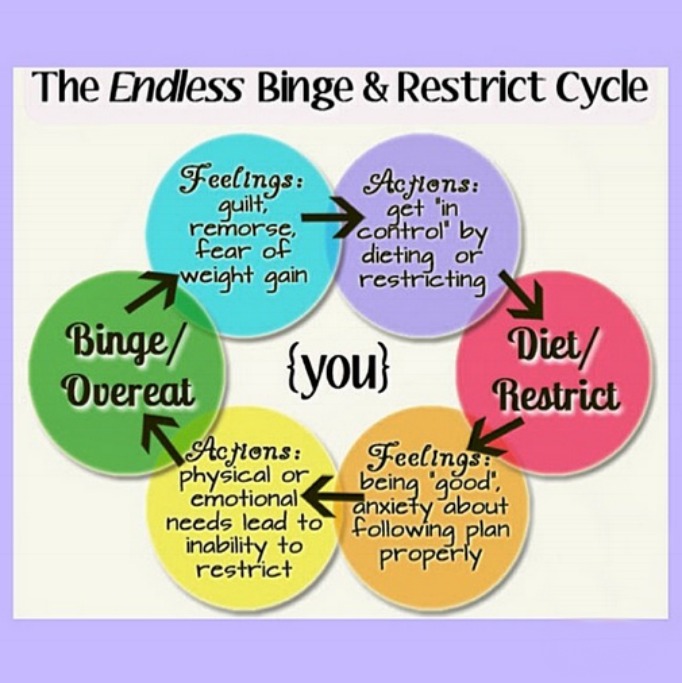
individual with BED has recurrent episodes of bingeing without purging, often leading to both emotional and physical distress.
How do I Know if I Have Binge Eating Disorder?You might be wondering what counts as binge eating. The American Psychiatric Association (APA) has strict symptoms that doctors and mental health professionals must rely on in order to diagnose someone with BED.
Related Reading
- Binge Eating Disorder – Bariatric Surgery or the Sleeve
- Binge Eating Disorder and Athletes
These symptoms are outlined in the Diagnostic and Statistical Manual of Mental Disorders (DSM-5). In order for someone to be diagnosed with BED, the following symptoms must be present [2]:
- Marked distress over bingeing episodes
- Loss of control over amount of eating
- Episodes that occur at least 1x per week for 3 months
In addition, three or more of the following symptoms must also occur for BED diagnosis:
- Eating until feeling uncomfortably full
- Eating more rapidly than normal (i.
 e. two hour period)
e. two hour period) - Feeling depressed, guilty, or disgusted with oneself after overeating
- Eating alone because of embarrassment associated with how much one is eating
- Eating large amounts of food when not feeling physically hungry
BED is actually more common than Anorexia Nervosa or Bulimia Nervosa. [1] Research shows that BED is three times more common than anorexia and bulimia combined. [3]
Though this eating disorder is prevalent in our country, it can easily go undetected from loved ones and even health professionals if the right questions are not asked.
Understanding the criteria that sets this disorder apart from overeating can help raise greater awareness of the severity of binge eating and help more people get the necessary care to recover.
Binge eating disorder may also go unnoticed and untreated because of the confusion about the disorder or the shame/embarrassment that someone struggling with this disorder may feel.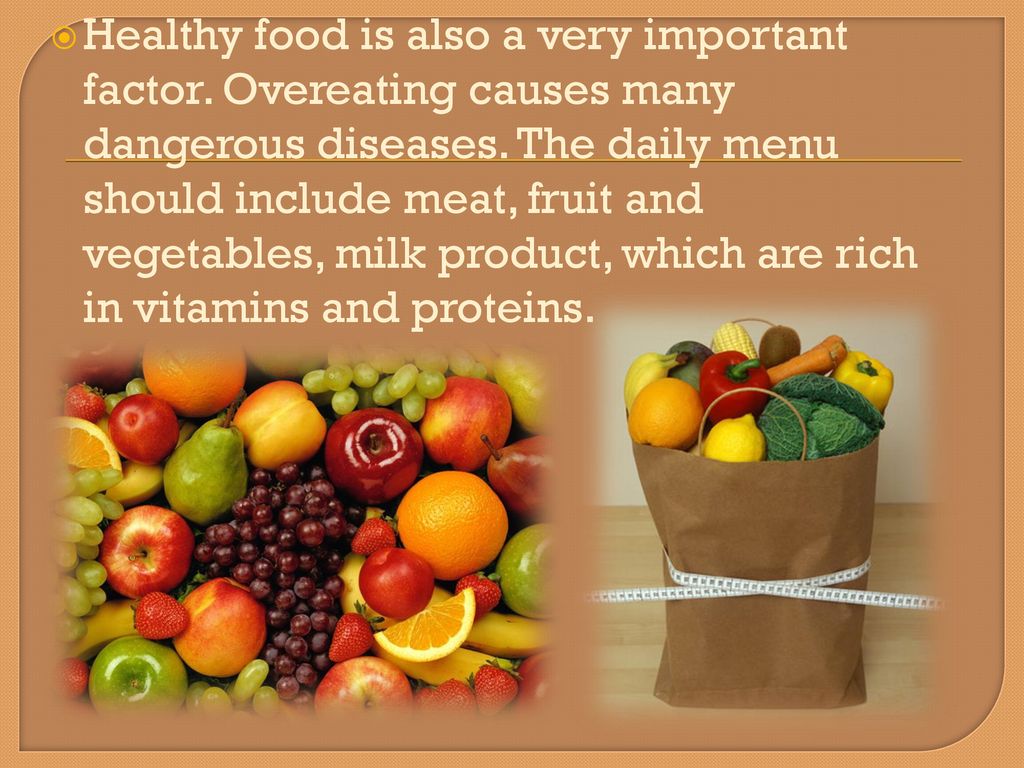
However, if you are aware of the warning signs and symptoms you have a better chance of being able to figure out when someone might need help.
The emotional and behavioral signs of binge eating disorder are: [1]
- Signs of binge eating, such as finding empty wrappers or missing food containers
- Discomfort with eating around others or in public
- Stealing or hoarding food
- Creating lifestyle changes or rituals in order to binge
- Withdrawing from friends or enjoyable hobbies
- Frequently diets
- Extreme concern with body weight or shape
- Frequent mirror gazing or body checking
- Eating alone due to embarrassment at the amount of food being eaten
- Fluctuations in weight
- Low self-esteem
There are physical signs of binge eating as well, including: [1]
- Noticeable fluctuations in weight, whether weight gain or loss
- Stomach cramps
- Gastrointestinal issues, such as constipation or acid reflux
- Difficulty concentrating
So if you’re wondering if you have Binge Eating Disorder vs basic overeating, reaching out to a qualified eating disorder professional. These providers can conduct a thorough assessment in order to determine what your unique needs may be.
These providers can conduct a thorough assessment in order to determine what your unique needs may be.
Finding an eating disorder specialist can be an invaluable part of this process, as they can appropriately assess symptoms that may be experienced to make a diagnosis. Early detection can be instrumental in the recovery and treatment for any individual who might be struggling with binge eating disorder.
References:
[1] National Eating Disorders Association. (n.d). Binge eating disorder. Retrieved July 26th, 2022 from https://www.nationaleatingdisorders.org/learn/by-eating-disorder/bed [2] American Psychiatric Association. (2013). Diagnostic and statistical manual of mental disorders (5th ed.). https://doi.org/10.1176/appi.books.9780890425596 [3] National Eating Disorders Association. (n.d). Statistics and research on eating disorders. Retrieved July 26th, 2022 from https://www.nationaleatingdisorders.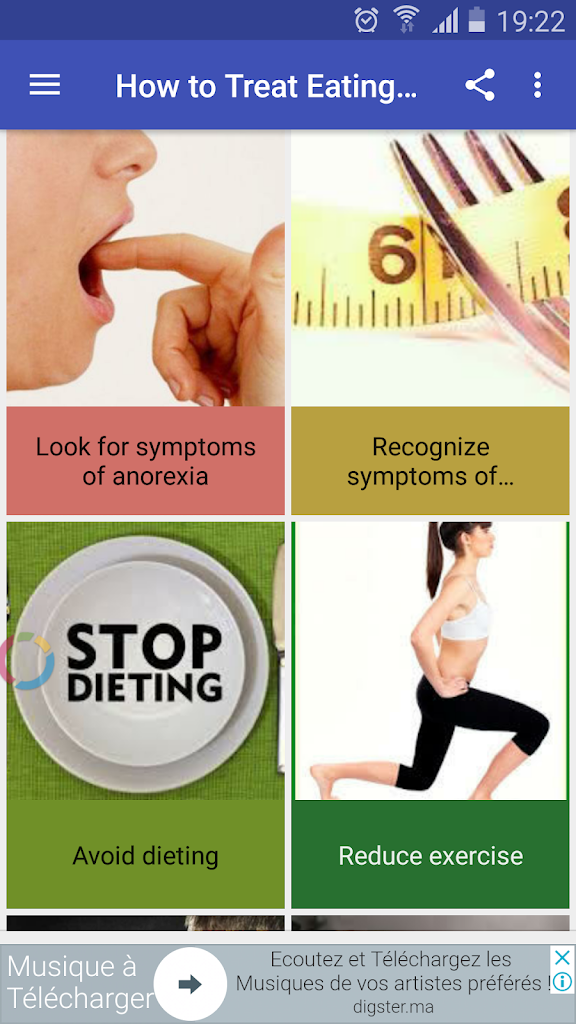 org/statistics-research-eating-disorders
org/statistics-research-eating-disorders
The opinions and views of our guest contributors are shared to provide a broad perspective on eating disorders. These are not necessarily the views of Eating Disorder Hope, but an effort to offer a discussion of various issues by different concerned individuals.
We at Eating Disorder Hope understand that eating disorders result from a combination of environmental and genetic factors. If you or a loved one are suffering from an eating disorder, please know that there is hope for you, and seek immediate professional help.
Published November 7th, 2022 on EatingDisorderHope.com
Reviewed & Approved on November 7th, 2022, by Jacquelyn Ekern MS, LPC
Author: Samantha Bothwell, LMFT
© Copyright 2022 Eating Disorder Hope. All Rights Reserved. Sitemap.Privacy Policy.Terms of Use.
MEDICAL ADVICE DISCLAIMER: The service, and any information contained on the website or provided through the service, is provided for informational purposes only.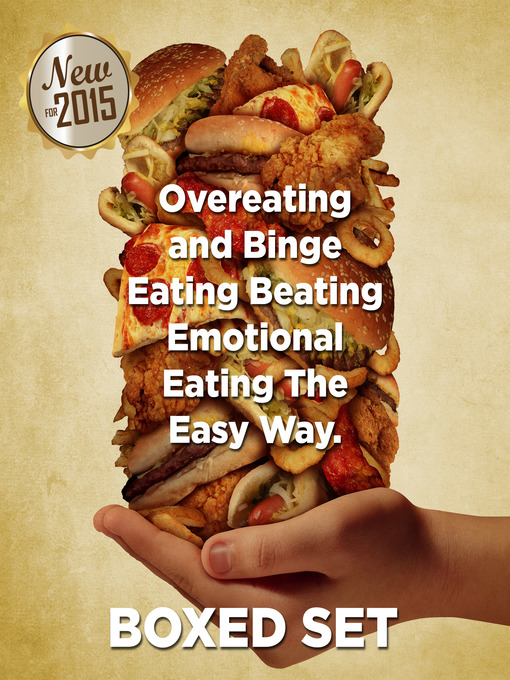 The information contained on or provided through this service is intended for general consumer understanding and education and not as a substitute for medical or psychological advice, diagnosis, or treatment.
All information provided on the website is presented as is without any warranty of any kind, and expressly excludes any warranty of merchantability or fitness for a particular purpose.
The information contained on or provided through this service is intended for general consumer understanding and education and not as a substitute for medical or psychological advice, diagnosis, or treatment.
All information provided on the website is presented as is without any warranty of any kind, and expressly excludes any warranty of merchantability or fitness for a particular purpose.
Call a specialist at Within Health for help (advertisement)
(855) 597-1992
Eating disorder - compulsive overeating, treatment of psychogenic nervous overeating in Moscow
Everyone at least once got up from the table with a feeling of a full stomach. If this happens infrequently, then there is no cause for concern. If the episodes are repeated, or so you are trying to get rid of stress, bad mood, it is worth suspecting the development of a nervous eating disorder. Compulsive overeating, namely eating in uncontrollable sizes, repeated episodically. The disease often occurs against the background of mental disorders, sometimes contributes to gaining excess weight, obesity. Therapy is carried out by a psychiatrist, interacting with a nutritionist, a psychologist.
Therapy is carried out by a psychiatrist, interacting with a nutritionist, a psychologist.
Article content:
- Disease description
- Symptoms
- Diagnostics
- Treatment
- Complications and neglected forms
Seek medical attention if symptoms occur. The information on the page is for reference only and cannot be used for self-diagnosis and self-treatment.
Nervous eating disorder - description of the disease
According to the Diagnostic and Statistical Manual of Mental Illness, psychogenic overeating (hyperphagic reaction to stress) is an independent disease that has a separate code 307.51. A patient with eating disorders is used to dealing with negative emotional stress, bouts of binge eating. The disease is manifested by a brutal appetite, which requires an abnormal amount of food with a high calorie content to satisfy it. Serious factors (loss of a family member, injury) and minor reasons - a raised voice, a missed bus, etc. can provoke a nervous attack. Nervous eating disorder is caused by mental causes, there is no physiology in a causal relationship. Food in this case is a tonic that allows you to forget about the problem for a while, to relax. The patient, who has experienced a nervous shock, does not try to feed the stomach, but to drown out the feelings.
Serious factors (loss of a family member, injury) and minor reasons - a raised voice, a missed bus, etc. can provoke a nervous attack. Nervous eating disorder is caused by mental causes, there is no physiology in a causal relationship. Food in this case is a tonic that allows you to forget about the problem for a while, to relax. The patient, who has experienced a nervous shock, does not try to feed the stomach, but to drown out the feelings.
It is important to distinguish between physiological hunger and appetite of a nervous nature. This is an important step towards recovery, selection of treatment:
| Nervous hunger | Physical hunger |
| May occur against the background of satiety, occurs unexpectedly and abruptly. | Develops gradually, the body does not require urgent saturation. |
During attacks, the body requires unhealthy food - fast food, fatty foods, sweets, starchy foods, etc. are in priority. are in priority. | You can satisfy your appetite with any food, homemade and healthy food. |
| The portion size is much larger than the usual volume, there is no control over the amount eaten. | A person eats exactly as much as needed to satisfy hunger. |
| The portion size is much larger than the usual volume, there is no control over the amount eaten. | The physical need for food is disguised as a feeling of "sucking in the pit of the stomach", weakness. |
| Feelings of guilt and shame arise after eating. | After eating, a feeling of satisfaction comes, strength appears. |
The causes of mental disorders can be genetic.
Compulsive eating disorder - symptoms
The basis of nervous overeating is the satisfaction of emotional needs, the solution of life problems, the ability to temporarily forget about loneliness, etc. However, food is a temporary salvation, after a short satisfaction comes a feeling of shame for weak willpower, guilt for the amount of food eaten. Eating disorder symptoms are often confused with other eating disorders. The symptoms of bulimia echo the clinical picture of compulsive overeating.
However, food is a temporary salvation, after a short satisfaction comes a feeling of shame for weak willpower, guilt for the amount of food eaten. Eating disorder symptoms are often confused with other eating disorders. The symptoms of bulimia echo the clinical picture of compulsive overeating.
An eating disorder or compulsive overeating is accompanied by the following symptoms:
- food becomes the only way to get rid of melancholy, sadness and other negative emotions;
- ED patient prefers to eat alone, hiding bouts of binge eating;
- lack of satiety after a sufficient amount of food consumed;
- Stress causes regular overeating even when there is no physical need for food;
- a patient with eating disorders eats abnormally large portions in a short period of time;
- Gluttony aggravated during stress, emotional experiences.
The main manifestation of compulsive eating disorder is loss of control over appetite.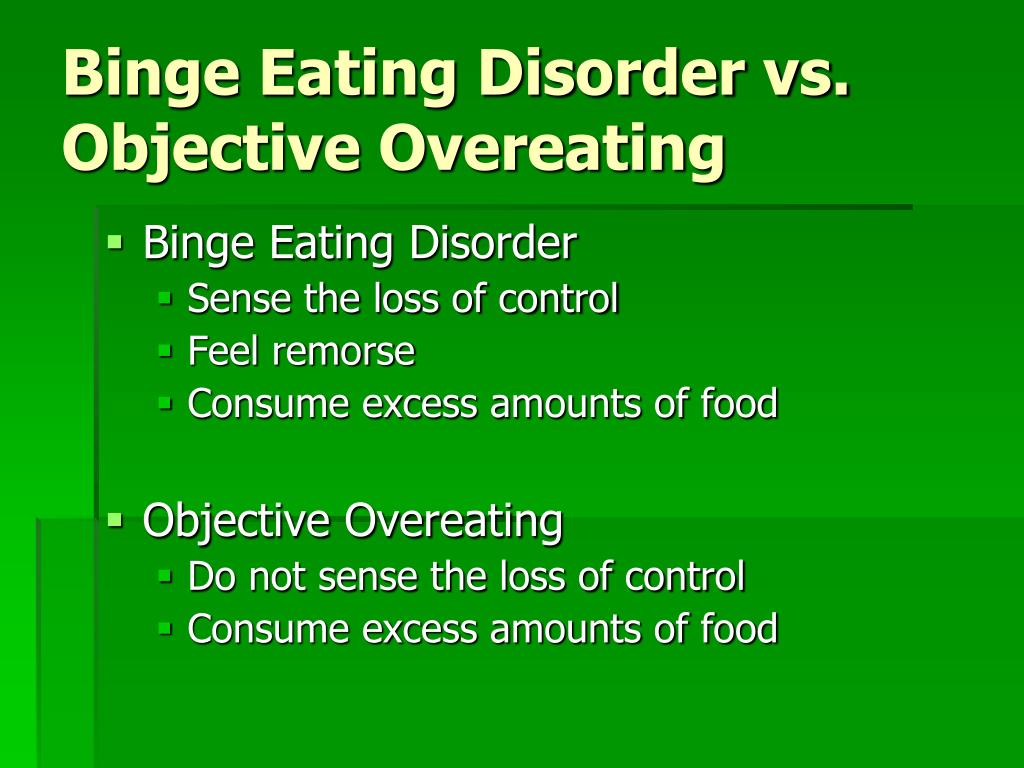 Even with conscious overeating, a person cannot stop. A psychogenic disorder is more likely to affect people with an unstable psyche who take events to heart. At risk are teenagers and women. Men also suffer from eating disorders, but much less frequently and, unlike women, do not seek to part with negative eating habits, taking them for granted.
Even with conscious overeating, a person cannot stop. A psychogenic disorder is more likely to affect people with an unstable psyche who take events to heart. At risk are teenagers and women. Men also suffer from eating disorders, but much less frequently and, unlike women, do not seek to part with negative eating habits, taking them for granted.
Diagnosis and treatment of psychogenic overeating
If you suspect nervous overeating, you should immediately seek help. You can make an appointment with a psychiatrist.
The Diagnostic and Statistical Manual of Mental Illness contains criteria, if 3 of them are met, the diagnosis of Eating Disorder - Binge Eating is confirmed:
- you prefer to eat alone;
- you experience discomfort from the amount eaten;
- you often sit down to eat when you don't feel hungry;
- after eating, guilt overcomes, self-loathing appears;
- regardless of the size of the portion you eat quickly, the food is not chewed thoroughly.
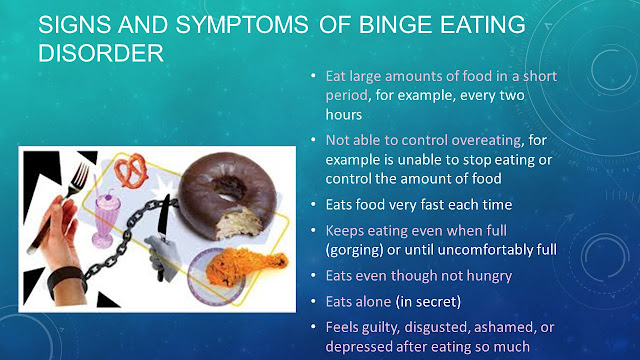
The doctor performs a control weighing, finds out what the patient's weight was in the recent past, how quickly the figure on the scales has changed. Then he selects the tactics of treatment in accordance with the anamnesis.
Treatment
Therapy of patients suffering from nervous overeating should be complex. Eating disorders are treated by a psychiatrist, psychotherapist, psychologist, nutritionist. The family doctor in this situation is not competent due to the lack of necessary knowledge and experience in the treatment of ED.
"CIRPP" specializes in the study, treatment of ED and adheres to complex tactics:
- drug therapy;
- psychotherapy effective for eating disorders;
- power restoration.
In the course of psychotherapy, individual and group methods are used, the main task of which is setting the right goals, teaching self-control, developing incentives, healthy beliefs.
Read more in the article:
Compulsive overeating: advice from a psychotherapist
Much attention in the treatment of eating disorders is given to nutrition, sometimes hospitalization is recommended. The clinic has created comfortable conditions for the treatment of patients, if necessary, emergency medical care is provided, an intensive care unit is provided. Usually, binge eating is treated on an outpatient basis. At first, support and control of loved ones at home is recommended.
The clinic has created comfortable conditions for the treatment of patients, if necessary, emergency medical care is provided, an intensive care unit is provided. Usually, binge eating is treated on an outpatient basis. At first, support and control of loved ones at home is recommended.
To book an appointment with the Center for the Study of Eating Disorders in Moscow, call +7(499) 703-20-51 or use the online form.
Complications and neglected forms
An eating disorder (overeating) is fraught with the development of serious consequences - obesity and atherosclerosis. The patient experiences chronic emotional dissatisfaction, which leads to prolonged depression and causes suicidal thoughts.
Unless treated for destructive binge, there is a high risk of developing complications:
- Distance from relatives and family as the condition worsens, refusal of family dinners and friendly meetings. A person with eating disorders prefers a secluded lifestyle to hide behavioral deviations.
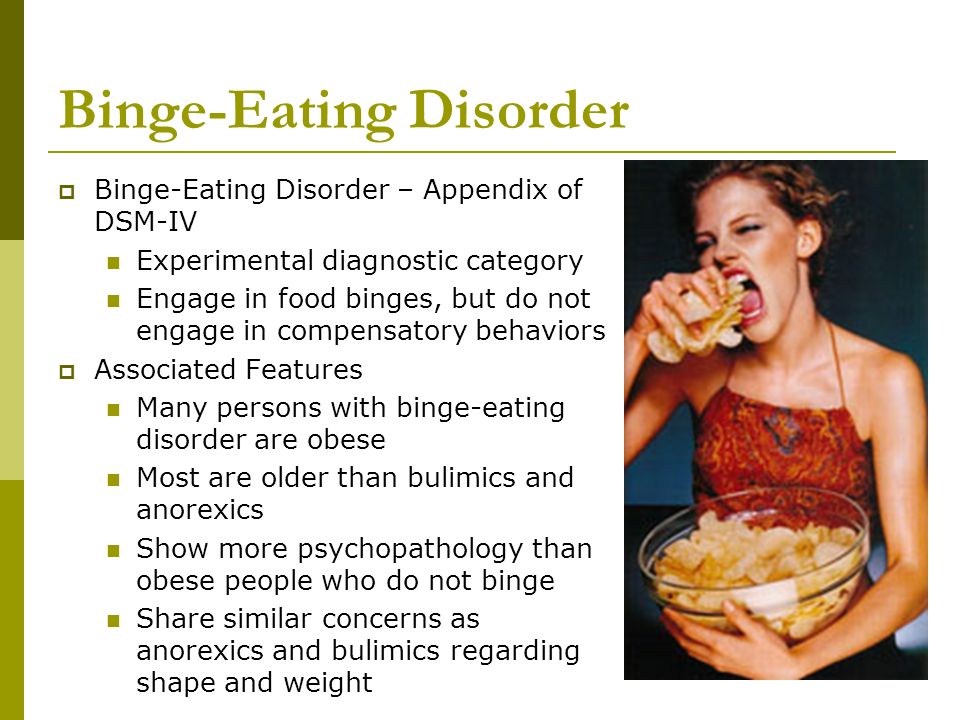
- Often a depressive state becomes the cause of addiction to alcohol and drugs. So the patient with ED tries to compensate for dissatisfaction with life.
- Compulsive nervous overeating affects health. Common complications include obesity, arthritis, high cholesterol, hypertension, and heart and kidney failure. The liver, gastrointestinal tract suffer from excessive uncontrolled nutrition, the character changes for the worse - irritability and anger prevail.
- Given the severity of complications, you should not postpone a visit to the doctor and self-medicate. Subject to timely treatment, the prognosis of therapy for compulsive disorder is favorable.
Make an appointment in Moscow by calling +7(499) 703-20-51 or fill out the online form. Psychiatrist, psychotherapist, narcologist.
Eating disorders | Tervisliku toitumise informatsioon
Eating disorders are psychiatric illnesses that damage a person's physical and mental health and impair their overall quality of life - relationships, work and personal development suffer.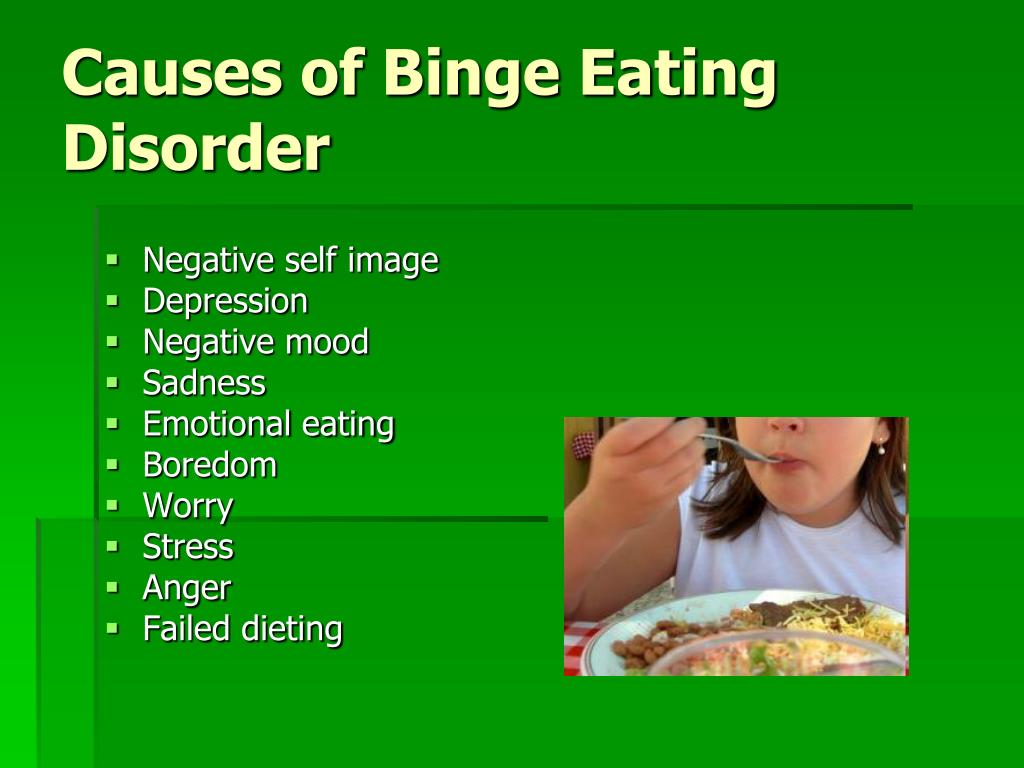
Eating disorders disrupt the connection with one's own body, resulting in highly problematic eating behavior. Weight and body shape are overemphasized, underweight is idealized, and various methods are used to lose weight or prevent weight gain.
Approximately 8% of women and 2% of men will develop an eating disorder during their lifetime. Eating disorders occur in any population, regardless of gender, age, ethnicity, or socioeconomic status. However, they are most common in girls and young women.
Eating disorders are a group of diseases that are distributed differently in different classifications. The most common eating disorders are anorexia ( anorexia nervosa ), bulimia ( bulimia nervosa ) and compulsive overeating ( binge-eating disorder ).
The term "eating disorder" is often erroneously used as a synonym for selective eating disorder, as both are associated with eating disorders. However, the reasons for them are different: an eating disorder is caused by a desire to control weight, while in a selective eating disorder, eating certain foods causes anxiety or fear.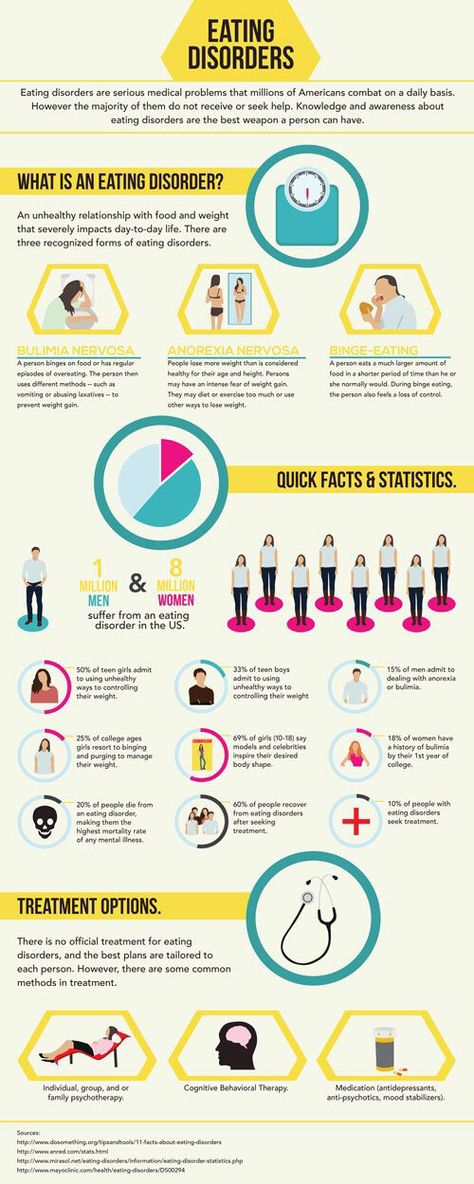
Other eating disorders
Anorexia, bulimia and binge eating disorders are the three most common and well-known eating disorders. However, often not all of the symptoms of a person with an eating disorder correspond to one specific disorder. In such cases, these disorders are referred to as "atypical" or "other eating disorders". A common myth is that in such cases the course of the disease is milder and treatment is treated more lightly. However, this is erroneous, since the name of the disease indicates only its diagnostic criteria, and not the severity or course.
All eating disorders, no matter how they are called or classified, are dangerous conditions that impair quality of life and require treatment.
Causes of Eating Disorders
There is never one single cause of an eating disorder. These are complex diseases, in the development of which a combination of many factors plays an important role. Genetic, biological and environmental factors always play a role. Modern social representations, including the culture of diets and the cult of slimness, contribute to the development of psychological vulnerability, which can become a fertile environment for the formation of eating disorders. Probably for the same reasons, a higher incidence of eating disorders is observed in sports in which weight is of great importance, and among representatives of professions focused on appearance. However, it should be emphasized that browsing social networks or playing a certain sport does not contribute to the development of the disease. There are many factors involved in the development of the disease that are usually beyond the control of the individual. However, it is often more practical and even more important to identify the factors that support the disease, since changing them is associated with better treatment outcomes.
Modern social representations, including the culture of diets and the cult of slimness, contribute to the development of psychological vulnerability, which can become a fertile environment for the formation of eating disorders. Probably for the same reasons, a higher incidence of eating disorders is observed in sports in which weight is of great importance, and among representatives of professions focused on appearance. However, it should be emphasized that browsing social networks or playing a certain sport does not contribute to the development of the disease. There are many factors involved in the development of the disease that are usually beyond the control of the individual. However, it is often more practical and even more important to identify the factors that support the disease, since changing them is associated with better treatment outcomes.
Treatment Options for Eating Disorders
Eating disorders can be life-threatening illnesses with a long and chronic course; they have one of the highest mortality rates of any psychiatric illness.